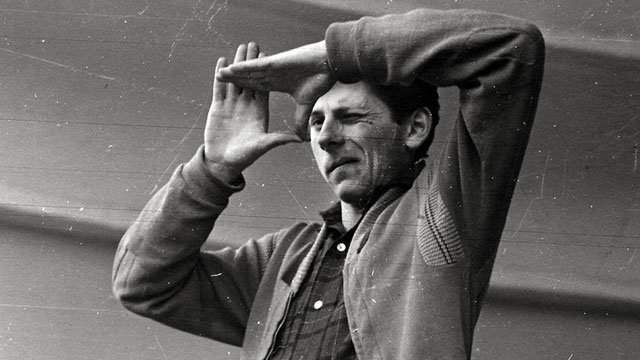Roman Polanski: A Film Memoir
Another controversy-stoking instalment in the extraordinary story of Roman Polanski.
Overview
Roman Polanski's story is an extraordinary one. His life has been marked by tragedies, victories, and traumas of filmic proportions, from his survival of Nazi occupation in his native Poland to the cult murder of his pregnant movie star wife Sharon Tate and his Oscar win for The Pianist in 2003.
Roman Polanski: A Film Memoir is an extended conversation between the auteur and his longtime friend Andrew Braunsberg, who produced several Polanski films. The interview took place while Polanski was under house arrest in Switzerland in 2010, following his second trial for drugging and raping a thirteen-year-old girl in 1977.
The production itself is pretty undergraduate shoddy sound, unimaginative camerawork, and cheap iMovie-style effects. It turns out the director, Laurent Bouzereau, makes his living producing 'making of' documentaries for movies like Jaws and Back to the Future, and he's clearly riding on Polanski's incredible story. Polanski, who trained as an actor, is a gifted storyteller and his earlier hardships in the Krakow ghetto during World War II are truly amazing. His retelling is cut with footage from The Pianist to show how his formative experiences manifested in his movies, and this is where the film is strongest.
But the biggest problem, and one which I can't overlook, is the treatment of Polanski's 1977 crime. The word 'rape' is never mentioned. Instead, the filmmakers focus on corruption in the justice system and offer an argument that goes along the lines of 'well, hasn't Roman been punished enough already?' It's a blatantly dishonest approach considering the enormity of the crime and Polanski's guilty plea. That Braunsberg, the key interviewer, is a close confidant and associate of Polanski's means that there is no veil of anything close to objectivity or distance, which is especially troubling given the film's already creepy mandate of setting the record straight, of advocating for a convicted rapist.
There's no doubt Polanski is a major artist, and his fans will probably get a lot out of his recollections of his childhood and early career, but don't expect any keen insights or rigorous attention to the ethics of documentary-making. Roman Polanski: A Film Memoir is a personal exercise in public atonement. Quite frankly, I left the cinema feeling infected.





